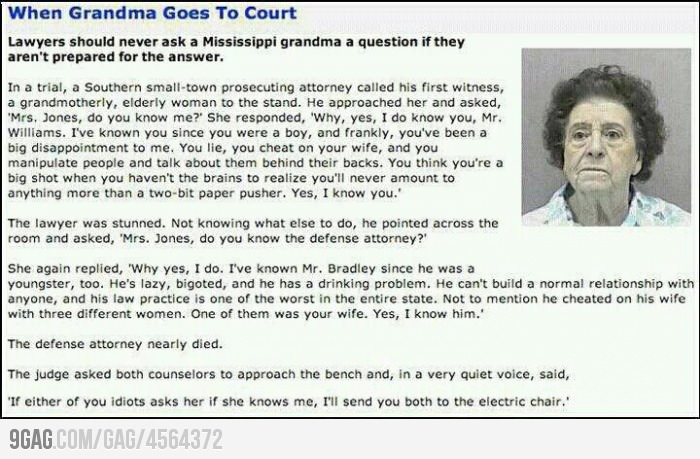So they can charge higher fees.
There may be a little bit of truth in that, but the full answer is, well, more complicated.
One of the reasons the law is often written in complicated or hard-to-understand language is because of the way law develops. In the United States, we use something called stare decisis. (That's pronounced starry de-sigh-sis.) Stare decisis means that we look at past cases to help us interpret the law today.
This helps maintain consistency throughout time and helps lawyers and litigants predict the outcome of their own case. Those are good goals. But one of the downfalls of stare decisis is that words and phrases from hundreds of years ago - like stare decisis - stay with us.
Another reason the law is so complicated is that sometimes lawyers will disagree about what a word or phrase means. If a word or phrase or phrase can be interpreted in more than one way, more words will need to be added to make sure it is interpreted as intended. A misinterpreted word can lead to huge unintended consequences.
A good lawyer who is writing a law or other legal document will try to think of every possible way the document could be misinterpreted in the future. The lawyer then has to write more into the law or document to guard against these possible future misinterpretations. As words and phrases are misinterpreted in laws and documents, over time, lawyers will include all the possible guards against all the possible misinterpretations that exist or might exist in the future. This is how a short sentence can turn into a page-long paragraph.
A third reason the law sounds so complicated is because terms of art have developed over time. A particular word or phrase might have a specific meaning in the law that is completely different than what it means outside the law.
An example of this is the word "continue." In everyday, to continue something means to keep going. But in court, to continue something means to put it off for another day or time. For example, a lawyer might ask to continue a hearing until the afternoon because she has a more pressing appearance scheduled in another courtroom that morning.
Or a word might not be used in everyday life, but it might have a well-known and easily understood meaning in the law. These words and phrases are often in Latin (see "stare decisis" above). These uses of words often provide shortcuts for lawyers, but they can make the law sound confusing and complicated to a nonlawyer.
Legal movies and television can use these words to great affect. A memorable scene from "Legally Blonde" is a great example of this. Elle (Reese Witherspoon) squares off against her rival in a discussion of the differences between the terms malum prohibitum (a regulatory crime) and malum in se (a dangerous crime).
The Due Process requirement of fundamental fairness also means that any ambiguity in a criminal law will be interpreted in the defendant's favor. That is called the rule of lenity (another phrase from centuries ago).
An example of the rule of lenity is found in United States v. Santos, 553 U.S. 507 (2008). The U.S. Supreme Court discussed the possible definitions of “proceeds” in the federal money laundering statute, 18 U.S.C. § 1956. Specifically, the Court discussed whether "proceeds" covers criminal receipts or profits. The Court stated:
From the face of the statute, there is no more reason to think that ‘proceeds’ means ‘receipts’ than there is to think that ‘proceeds’ means ‘profits.’ Under a long line of our decisions, the tie must go to the defendant. The rule of lenity requires ambiguous criminal laws to be interpreted in favor of the defendants subjected to them. . . . Because the ‘profits’ definition of ‘proceeds’ is always more defendant-friendly than the ‘receipts’ definition, the rule of lenity dictates that it should be adopted.
The next time you hear someone ask why the law is so complicated, you can give a lawyer's favorite answer to any legal question: It depends.
If you are a writer, request the free ebook revealing the Top 7 Mistakes Made by Writers of Crime, Mystery and Legal Drama. If you want a first free consultation on your project, contact me.






























 RSS Feed
RSS Feed
